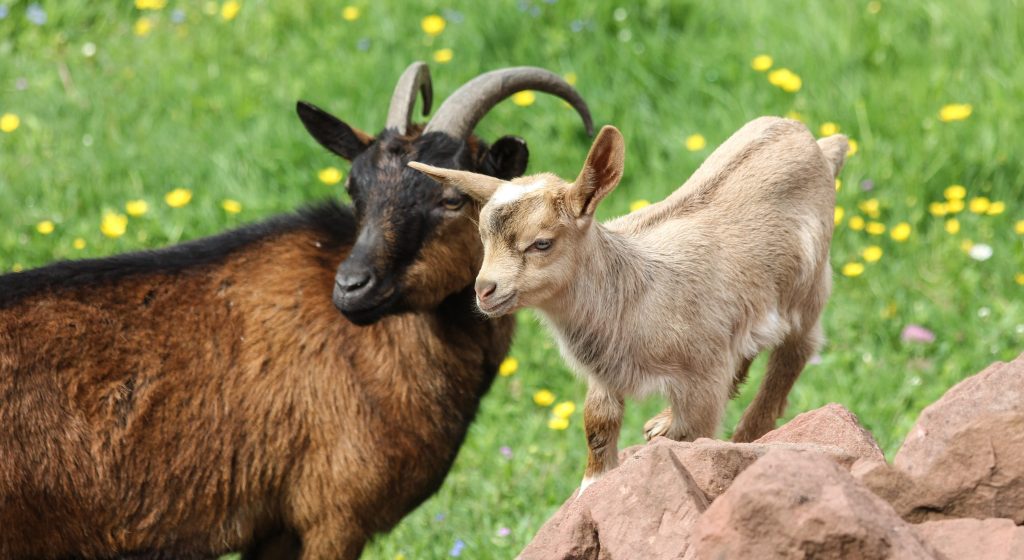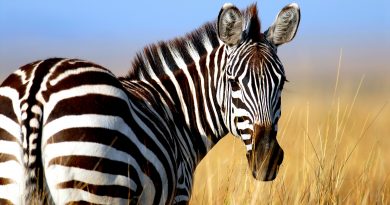Vegetable meat : a good alternative for everyone ?
(Matthieu Ricard) Meat of animal origin: a product which is contrary to the respect of animals and disastrous for the environment.
Vegetable meat
A.T. Kearney Bureau for Strategic Foresight, located in Chicago, recently concluded in a study that 60% of the meat produced in 2040 will be derived from in vitro culture using stem cells, or plant substitutes with taste and texture similar to traditional meat. This means that more than half of the meat will no longer come from animals bred to be killed. This study comes back to two major problems caused by conventional production and consumption of meat: they are contrary to the respect of animals and they have very heavy impacts on the environment, on the other hand. (2)
It is estimated that just over one hundred and ten billion Homo sapiens have existed on Earth since the appearance of our species (3) (let’s not forget that 10,000 years ago we were only about 5 million humans on the planet). This is the number of terrestrial and marine animals that we kill every two months, as if nothing had happened. While science and common sense recognize that most animals have consciousness, emotions and the desire to escape suffering and stay alive, the coherence of our ethics is seriously questioned. Can we continue for long to arrogate to ourselves the right of the strongest or the most ‘intelligent’ in order to instrumentalize, cause suffering and mercilessly kill so many sentient beings?
Furthermore, it has been demonstrated on many occasions that livestock farming is the second most important cause of greenhouse gas emissions that contribute to global warming (15% of the total). According to Joseph Poore and Thomas Nemecek of Oxford University, the carbon footprint of livestock is very high, since this sector generates 60% of the greenhouse gas emissions from agriculture. It has many other drawbacks, which the scientists detail in a study published in 2018. (4) Among other things, they show that the traditional meat sector also leads to over-consumption of freshwater, pollution of rivers and oceans through excessive accumulation of nutrients (eutrophication), and destruction of natural species habitats harmful to biodiversity. He explains that “a vegan diet is probably the most effective way to reduce [our] impact on the Earth. “The United Nations IPCC report also states that if we want to limit global warming to 2 degrees by the end of the century (a target that unfortunately seems unlikely to be reached), one of the changes would be for humanity to reduce its meat consumption by 80%.
In vitro meat culture: a promising alternative that is attracting a lot of interest
The production of unconventional meat and the use of plants for the production of alternatives to meat from animals are more energy efficient. Indeed, the energy yields of meat from animals are very low: 83% of the world’s crops are used to produce meat, even though it generates only 18% of the calories and 37% of the protein consumed by humanity. (5) As a result, only 15% of the calories originally present in plants are actually absorbed by humans when they eat traditional meat. Whereas in the case of cultured meat and vegan substitutes, about three-quarters of the calories initially generated by plants reach the final consumer.
Thus, thanks to these advantages, vegan products and cultured meat have the capacity to transform the traditional market. Every year billions of animals are raised and killed to meet the demand for meat production, which generates between $785 billion and $1 trillion a year. However, some businesses that produce alternatives to meat (vegan burgers, scrambled eggs from soybean sprouts and others) are experiencing strong and rapid growth. They can count on the confidence of investors. For example, Beyond Meat raised $240 million when it went public in 2019. Since then, its share price has more than doubled. Journalist Damian Carrington describes the excitement by saying: “In the United States, meat and food technology companies are demonstrating that applying science to our food can save the world and generate revenue.” (6) And investment in these technologies is not just for new companies. According to A.T. Kearney, $1 billion has been invested in research and production of cultured meat and vegan products by all companies. (7)
Finally, according to Carsten Gerhardt of A.T. Kearney, in view of new consumer considerations and economic trends, cultured meat is set to dominate the market over traditional meat and vegetable substitute products. Cultured meat more closely replicates the taste and texture of traditional meat than the latter. The study therefore estimates that 35% of the meat produced in 2040 will be cultured meat and 25% will be vegan substitutes derived from plants. “The shift to flexitarian, vegetarian and vegan lifestyles is undeniable, with many consumers reducing their meat consumption due to increased environmental awareness and animal welfare.” The underlying benefit is that carnivores will be able to maintain their diet without the costs to the environment and animals. Rosie Wardle of the Jeremy Coller Foundation, a philanthropic organization focused on sustainable food, even states that “we are already moving towards more sustainable protein consumption patterns, […] the predictions that 60% of the meat consumed in the world will not come from slaughtered animals within 20 years may be underestimated”.
A development that is still uncertain and technologies that require further development
However, despite the interest in the promising field of animal cell-based meat production, many products are still under development and not available on the market. In addition, there are questions about how these substitutes will be received by consumers. But concern about cultured meat will not be a barrier, according to A.T. Kearney. It will simply need time to conquer the market: “Cultured meat will win in the long run, but new meat substitutes [plant-based vegan products] will be essential for the transition phase.”
We obviously need to remain vigilant in the face of these innovations. Abandoning traditional animal meat is an eminently desirable step forward from an ethical point of view, but it does not assure us that what is on our plates is good for the planet or for ourselves. It will be essential to ensure that these substitutes avoid the use of, for example, monocultures of soya or other genetically modified plants that are increasing deforestation in the Amazon and Africa and gradually eliminating local small farmers.
In addition, numerous epidemiological studies – some of which have followed 100,000 people for 18 years – have led the WHO to consider meats (especially red and processed meats) as generally harmful to health. Synthetic meat has no reason to be better for health than meat of animal origin, since it differs hardly at all from it.
It will also be necessary to pay attention to the environmental footprint of synthetic meat, and to the potential emissions of CO2 and methane (a gas that is twenty times more active than CO2 in the greenhouse effect, but whose lifetime in the atmosphere is ten times shorter than that of CO2) so as not to replace one evil with another. This technological development is therefore creating, as is often the case, a debate in which it seems necessary for all actors in society to take part in order to propose solutions that take into consideration the fate of animals, which are too often neglected, the environment and human health. It is high time to make progress in civilization from an ethical point of view and to preserve what can still be preserved from our environment.
While we’re waiting for a meat substitute that’s safe and environmentally responsible…
The organisation L214, named after the article of the rural code dating from 1976 which, for the first time in French law, recognised animals as sentient beings, defends their rights and denounces the mistreatment they suffer in France, particularly during their breeding, transport and slaughter.
One of the websites of the association L214 (in French), Vegan Pratique, offers informative content on the issue of veganism, but also quality advice on how to go smoothly and cheaply towards a vegan or vegetarian diet, as tasty as possible. (8)
Practicing such a diet seems to me to be a commitment as wise as it is necessary. Not only is veganism an ethical attitude toward animals, because it respects their sensitivity and their right to life, but it is also a way to participate in the reduction of our ecological footprint on Earth, which is most urgent today.
Notes
(1) Carrington, Damian. “Most ‘Meat’ in 2040 Will Not Come from Dead Animals, Says Report.” The Guardian, Guardian News and Media, 12 June 2019, www.theguardian.com/environment/2019/jun/12/most-meat-in-2040-will-not-come-from-slaughtered-animals-report
(2) Carrington, Damian. “Huge Reduction in Meat-Eating ‘Essential’ to Avoid Climate Breakdown.” The Guardian, Guardian News and Media, 10 Oct. 2018, www.theguardian.com/environment/2018/oct/10/huge-reduction-in-meat-eating-essential-to-avoid-climate-breakdown
(3) According to estimates by the Population Reference Bureau (PRB) : https://www.prb.org/howmanypeoplehaveeverlivedonearth/
(4) Nemecek, T, Poore, J. “Reducing food’s environmental impacts through producers and consumers.” American Association for the Advancement of Science. 1 Jun. 2018. https://josephpoore.com/Science%20360%206392%20987%20-%20Accepted%20Manuscript.pdf
(5) Carrington, Damian. “Avoiding Meat and Dairy Is ‘Single Biggest Way’ to Reduce Your Impact on Earth.” The Guardian, Guardian News and Media, 31 May 2018, www.theguardian.com/environment/2018/may/31/avoiding-meat-and-dairy-is-single-biggest-way-to-reduce-your-impact-on-earth
(6) Carrington, Damian. “The New Food: Meet the Startups Racing to Reinvent the Meal.” The Guardian, Guardian News and Media, 30 Apr. 2018
(7) Allen, Mary.“The World’s Third Largest Meat Producer Just Invested in Cell-Based Steak.” The Good Food Institute, 14 May 2019, www.gfi.org/cargill-invests-aleph-farms
(8) Pourquoi devenir vegan ? (“Why Becoming Vegan ?”), Vegan Pratique. https://vegan-pratique.fr/pourquoi-devenir-vegan/
Source: Matthieu Ricard
You may also like:




